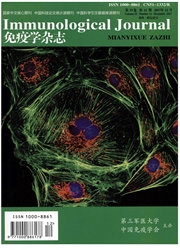

 中文摘要:
中文摘要:
嵌合抗原受体(chimeric antigen receptor,CAR)修饰的T细胞是一种利用基因工程的方法使T淋巴细胞以非组织相容性复合体的限制的方式特异性识别肿瘤表面抗原并且增强T细胞功能和持久性的一种新型受体,兼具单抗技术和细胞免疫技术的优势,在B淋巴细胞白血病、B淋巴瘤、多发性骨髓瘤、脑胶质瘤、黑色素瘤及前列腺癌等患者的临床试验中取得了显著疗效。但其在恶性实体瘤治疗方面仍面临许多问题。本文就CAR-T细胞的技术原理、在实体瘤中的临床研究进展以及存在的安全问题及解决策略进行简要综述。
 英文摘要:
英文摘要:
Chimeric antigen receptor(CAR) T cell is a kind of novel genetically engineered receptor that can recognize tumor cell-surface antigens without MHC restriction, and can augment T-cell function and persistence.With the advantage of both monoclonal antibody technology and cellular immune technology, the great therapeutic effects has been made in clinical patients of B lymphocyte leukemia, B lymphoma, multiple myeloma, brain glioma,melanoma and prostate. Some progresses has also been made in treatment for solid tumor, though some problems still should be solved. This review will briefly focus on the CAR-T cell progress, challenges in the malignant solid tumors and the safety issues and solution strategies.
 同期刊论文项目
同期刊论文项目
 同项目期刊论文
同项目期刊论文
 Up-regulation of Nrf2 is involved in FGF21-mediated fenofibrate protection against type 1 diabetic n
Up-regulation of Nrf2 is involved in FGF21-mediated fenofibrate protection against type 1 diabetic n Optimal conditions of LDR to protect the kidney from diabetes: Exposure to 12.5 mGy X-rays for 8 wee
Optimal conditions of LDR to protect the kidney from diabetes: Exposure to 12.5 mGy X-rays for 8 wee 期刊信息
期刊信息
